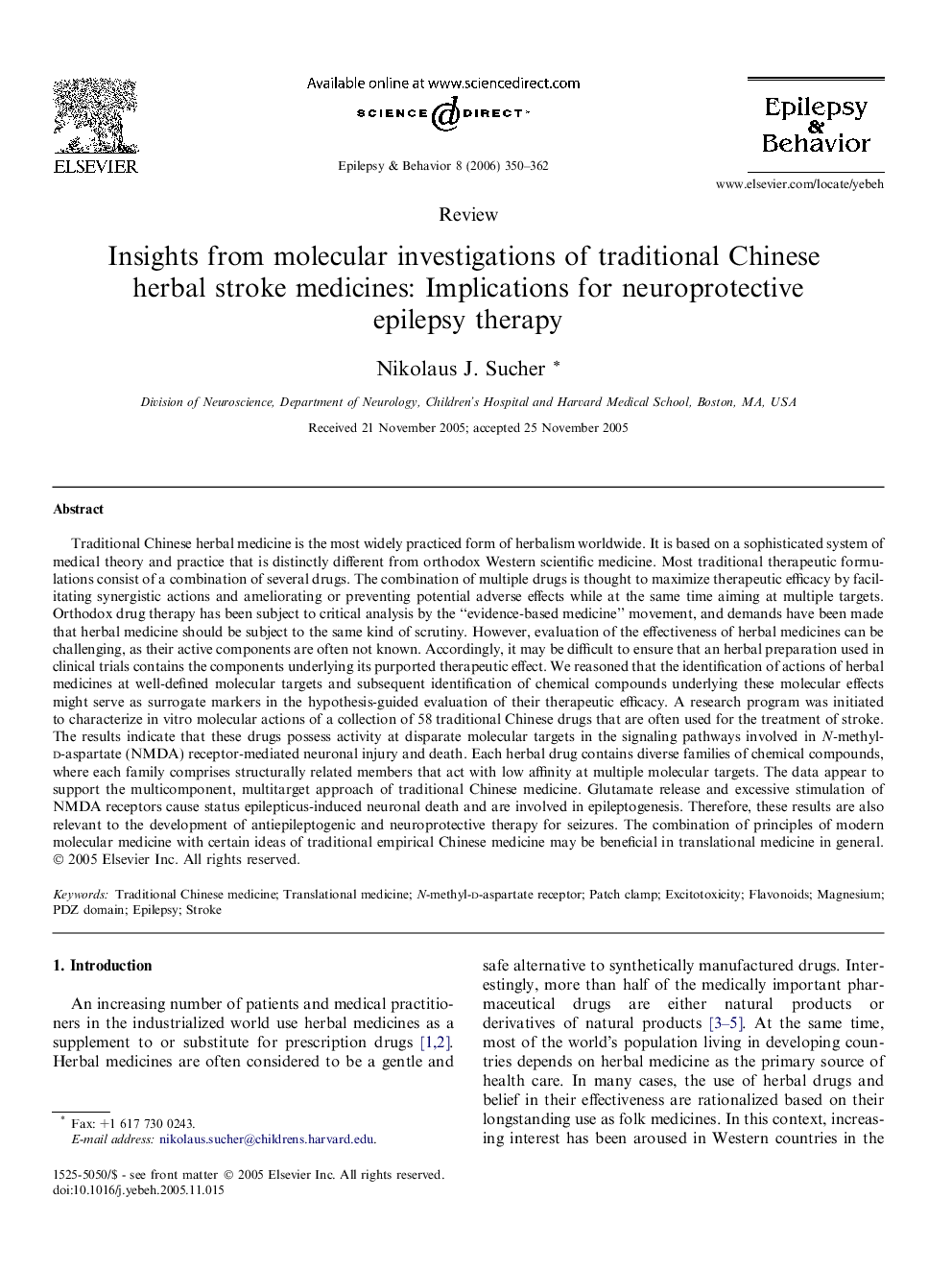| کد مقاله | کد نشریه | سال انتشار | مقاله انگلیسی | نسخه تمام متن |
|---|---|---|---|---|
| 3051565 | 1185989 | 2006 | 13 صفحه PDF | دانلود رایگان |

Traditional Chinese herbal medicine is the most widely practiced form of herbalism worldwide. It is based on a sophisticated system of medical theory and practice that is distinctly different from orthodox Western scientific medicine. Most traditional therapeutic formulations consist of a combination of several drugs. The combination of multiple drugs is thought to maximize therapeutic efficacy by facilitating synergistic actions and ameliorating or preventing potential adverse effects while at the same time aiming at multiple targets. Orthodox drug therapy has been subject to critical analysis by the “evidence-based medicine” movement, and demands have been made that herbal medicine should be subject to the same kind of scrutiny. However, evaluation of the effectiveness of herbal medicines can be challenging, as their active components are often not known. Accordingly, it may be difficult to ensure that an herbal preparation used in clinical trials contains the components underlying its purported therapeutic effect. We reasoned that the identification of actions of herbal medicines at well-defined molecular targets and subsequent identification of chemical compounds underlying these molecular effects might serve as surrogate markers in the hypothesis-guided evaluation of their therapeutic efficacy. A research program was initiated to characterize in vitro molecular actions of a collection of 58 traditional Chinese drugs that are often used for the treatment of stroke. The results indicate that these drugs possess activity at disparate molecular targets in the signaling pathways involved in N-methyl-d-aspartate (NMDA) receptor-mediated neuronal injury and death. Each herbal drug contains diverse families of chemical compounds, where each family comprises structurally related members that act with low affinity at multiple molecular targets. The data appear to support the multicomponent, multitarget approach of traditional Chinese medicine. Glutamate release and excessive stimulation of NMDA receptors cause status epilepticus-induced neuronal death and are involved in epileptogenesis. Therefore, these results are also relevant to the development of antiepileptogenic and neuroprotective therapy for seizures. The combination of principles of modern molecular medicine with certain ideas of traditional empirical Chinese medicine may be beneficial in translational medicine in general.
Journal: Epilepsy & Behavior - Volume 8, Issue 2, March 2006, Pages 350–362